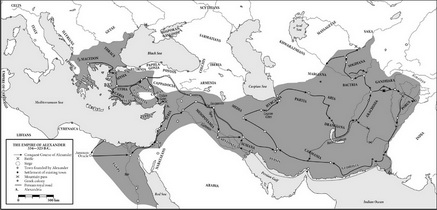SAT Writing and Language Practice Test 13
Questions 12-22 refer to the following information.
Alexander's Empire of Culture
Alexander the Great is a name known to all, but not all know the extent of Alexander's accomplishments. Now that the study of the "classics" (mainly Roman and Greek civilizations) has 12 disappeared both from high-school and college curricula, Alexander the Great's legend is not on the tongue of every schoolboy, though his accomplishments have not 13 diminished for all that.
Alexander was born in Pella, Macedonia, in 356 bce. His father, King Philip II, a strong military king 14 in his own write, believed that his son was born part man and part god. Alexander came to cultivate the image himself, bolstered by his keen intellect and learning, quickened in part by his tutor, the great Greek philosopher Aristotle. Pella was at that time a backwater of Greek culture, and 15 his arrival announced a new era of what historians would later call "enlightened monarchy," 16 even though that term is used much more to describe monarchies in the eighteenth century.
Still, the age was not entirely new. Alexander spent nearly all his time abroad, first uniting the Greek kingdom that threatened to fall apart at Philip's death, then moving on to broader military conquests. 17 Alexander had conquered an incredible amount of land by the time of his death in 323 BCE, 18 as his empire stretched from Greece to modern-day India, some two million square miles. When his armies conquered Persia (now Iran and Iraq) once and for all, he took on the title by which he is still known today: King of Babylon, King of Asia, King of the Four Quarters of the World.

Extent of the empire of Alexander the Great
Alexander's historical importance is not merely one of military might, however. 19 He moved to these different parts of the world, he brought Greek culture with him. His reign marks an unprecedented 20 instance of contact, between the ancient East and West. Over twenty cities throughout the empire bear his name. Alexandria, Egypt, perhaps the most famous of these cities, continues to 21 thrive. It is the second-largest city in the modern nation of Egypt.
Perhaps history is the wrong place to understand the accomplishments of Alexander the Great. Epic poetry seems more suitable. After all, Alexander's great teacher Aristotle showed him Homer's Iliad and Odyssey, and it seems that Alexander himself understood his life as a shuttling back and forth between man and god, the individual and the world, and the natural 22 and the unnatural.